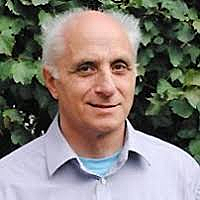
Many HSA members will have heard the sad news that Jim Kemeny passed away earlier this month aged 77, after a period of ill health. Both of us collaborated with Jim for a sustained period from the mid 1990s to the early 2000s and we remained in touch, until a few years ago. We first met Jim in the mid 1990s - after he contacted us to collaborate on a book chapter on homelessness, edited by David Clapham and Susan Hutson. Jim had been one of the reviewers of our first joint publication for housing studies (on discourse analysis) and we were thrilled to take up this opportunity to work with him. Over the next 10 or so years we met in both Plymouth and London and published a number of articles and an edited book on social constructionist approaches to housing. We owe a huge debt of gratitude for the opportunities he provided us and for his guidance when he was editor of Scandinavian Housing and Planning Research – later to become Housing, Theory and Society.
When thinking about Jim, we have two lasting impressions. First, the kindness and generosity that he extended to us and other academics - such as David Clapham, Brigid Franklin, Lise Saugères, Stuart Lowe, Chris Allen and Craig Gurney. He taught us valuable lessons in encouraging others to undertake research work, writing collaboratively and developing our academic interests. Our second main impression was the range and depth of his theoretical insights. We started our careers, not long after the publication of Jim’s seminal text - Housing and Social Theory and we were inspired by his examination of the corpus of housing studies - and for the way he advanced a critical sociological interpretation.
Jim encouraged us to pursue theoretical work and his scholarly contribution was invaluable, evidenced through its influence upon a new generation of UK housing researchers, many of whom are now leading scholars in the field (such as John Flint, Kim McKee, David Cowan and Rowland Atkinson). The theoretical turn within housing - focusing on hegemonic discourses, the operation of stigma, inequality and power relations - can be traced back to Jim’s earlier work. It is rare to find a theoretically informed paper, presented at a housing conference, which does not reference a Kemeny publication. Jim would have been delighted that at a recent HSA-supported seminar on ‘reconceptualising tenure’ contributors used his analysis to consider the links between tenure and social structure as their starting point for discussion.
It was a great privilege and pleasure to work with Jim – he was not a regular conference attender and many who are familiar with his work will not have had the pleasure of his company. Jim was a modest and self-effacing man, who wore his extensive learning lightly. As well as discussing our shared intellectual interests, we spent a long time chatting about our backgrounds (we all grew up in North-West London) and the particular challenges of working at modern Universities. Jim was, in some respects, an old-fashioned housing scholar - he successfully resisted the demands to secure short term funding that focused solely on contemporary practice. With justification, he felt that grant funders’ insistence on policy-relevance not only impeded a capacity for critique but also curtailed the ability to ask wider, more systematic questions about the relationship between housing systems and the modern State. In this respect he was clearly influenced by earlier, sociologists such as Charles Wright Mills, Erving Goffman and Norbert Elias (the latter taught Jim at Leicester).
Jim was a hugely influential housing scholar - known for his work on ideology, tenure, homeownership, comparative housing and social constructionism. He studied sociology as an undergraduate at the University of Leicester in the early 1960s (where he acquired a lifelong interest in sociological theory) - he studied for a MA at Sheffield and a PhD at Gothenburg (on the topic of interactionism as an approach to macro sociology). His teaching and research posts included spells at Aberystwyth, Aberdeen, Minnesota, Adelaide, Birmingham, Bristol, Plymouth and finally Uppsala.
Through his deep interest in social theory and his wide range of publications, Jim generated extensive (occasionally hostile) debate, but Jim also responded with honesty, good grace and never a hint of animosity. As one of the first scholars to provide a sustained critique on the implicit positivism evident in much housing research, he was instrumental in broadening the scope of housing studies - in the process inspiring a generation of researchers. His intellectual insights, sustained over several decades, identified the importance of methodological reflection and provided an incisive evaluation of the ways that powerful commercial interests secure profits from a housing system and accentuate socio-economic inequality. From a personal perspective, we will never forget his support and encouragement at an early stage in our careers. To quote his own words (from the interview given to Chris Allen in Housing, Theory and Society): ‘It’s important to take the long view. There is too much to do and too little time to do it in, so the future lies with the next generation’. Jim will be greatly missed but his influence will endure and stand as a testament to a remarkable scholar.
Professor Keith Jacobs (University of Tasmania) and Dr Tony Manzi (Sheffield Hallam University)






